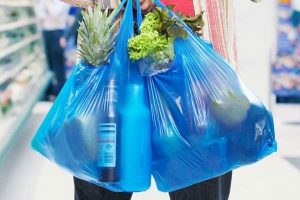THE Philippine Retailers Association (PRA) said it is seeking to clarify which plastics will be categorized as single-use and subject to a proposed tax.
“It is a good environmental (measure) but our biggest concern right now is which plastics (are taxable)… There are plastics which are 30% degradable and even 50% degradable,” PRA President Roberto S. Claudio told reporters recently.
“We want more clarity and they need to define (more clearly) what single-use means,” he added, asking whether the tax applies to recyclable plastic.
At his second State of the Nation Address, President Ferdinand R. Marcos, Jr. appealed to Congress to focus on tax measures, including an excise tax on single-use plastics.
Mr. Claudio said the retail industry will be on the frontlines of implementing such a measure.
“We are the ones selling the products; we are the ones responsible for packaging the products that we give to the customers,” he said.
“One of the solutions we see is to encourage the use of reusable bags. If customers have their own reusable bags, they will not be charged, but if they ask for a plastic bag we will charge them,” he said.
“And then, I will use that fee to pay for the tax once the government decides to (impose) tax on single-use plastics. So eventually, who shouldered the burden? The consumer. They are the ones who will pay for it,” he added.
He cited the potential for “confusion” if the rules aren’t cleared up, though the industry “supports the idea of reducing plastic use.”
Last year, the House of Representatives approved on the third reading House Bill (HB) 4102, or the proposed Single-Use Plastic Bags Tax Act, which seeks to impose an excise tax of P100 per kilogram of bags made of single-use plastic.
HB 4102 defines single-use plastic bags as “secondary-level plastics made of synthetic or semisynthetic organic polymer,” which include “ice” and “sando” bags.
The House approved the bill in November. Its counterpart measure remains with the Senate ways and means committee. — Justine Irish D. Tabile

